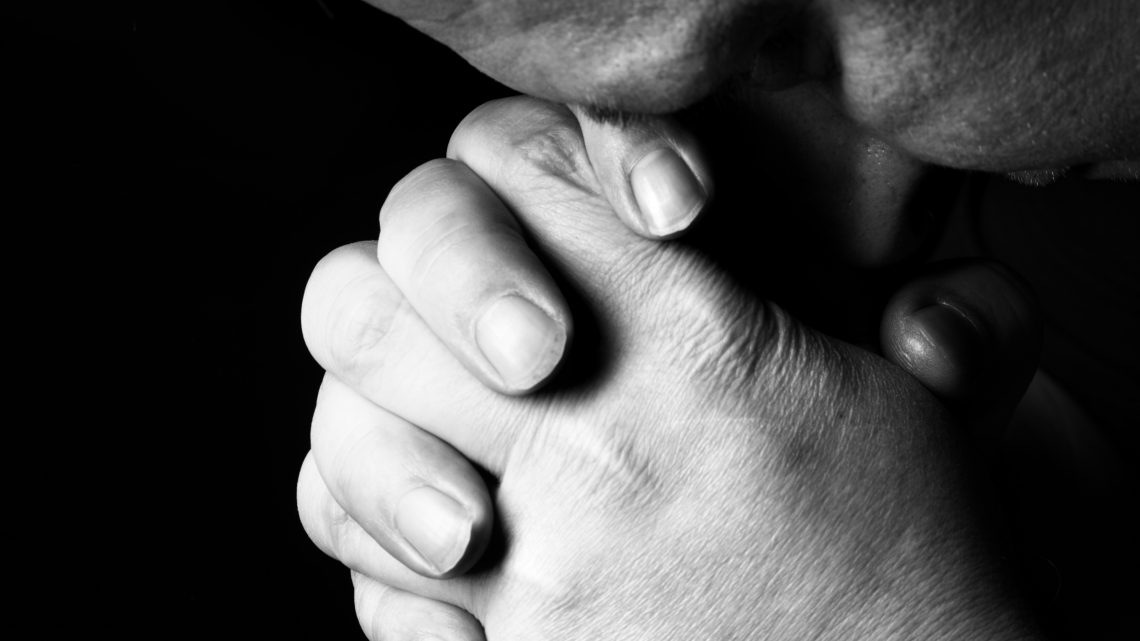If you spend much time reading blogs on the Internet, you will realize that the church, our denomination, is this polarized as the society at large. There are many Christian bloggers these days — and I am not referring to those on the outlook website, but in other places — whose blogs goes something like this: “I am not like the Christians who say…”
And what follows depends upon where one sits on the spectrum of opinion. If one sits on the far right, then they decry the secularization of values, rebellion against Scripture and church authority, the erosion of standards of Christian behavior, etc.
If one sits in the far left, he or she decries the lack of compassion, the bigotry, the close mindedness of so many Christians.
You get the idea. If you are like me, you want to say something like, “Stop it! Stop it! You are both wrong!” And then I reread Daniel 9.
We call ourselves Christians, but we are not known by our love.
By the time of chapter 9, Daniel has lived in captivity for more than 60 years. Those decades have been full of piety, self-sacrifice, and dedication to his duty, both as a subject of various kings, as an adviser to the rulers of empires, and as a servant of God. He is one of the very few characters in Scripture about whom nothing bad is reported. He has distinguished himself in all of his roles, and especially his faithfulness to the Lord.
And now, in what surely must be his final years, he is focusing on the prophecies concerning the exile of Israel. He sees that according to prophecy that time is soon to be concluded.
He is a man with clear vision and tremendous insight. While he and some of his companions have remained faithful to God, he realizes that many of his fellow Israelites have adapted themselves to their exile. He sees that many of the sins that brought about their exile in the first place continue to be practiced by too many.
If any merely human being could be justified in saying of his fellow countrymen, “They,” had done all these wrongs, it would’ve been Daniel.
It would be easy for him, given his record, and what he sees around him, to lapse into lamentation about the state of God’s people. They are still rebellious, he might’ve thought; they have given themselves over to some of the practices of the Babylonians and the Persians; and not recognized their condition. And his assessment would’ve been accurate. That’s what makes the prayer of Daniel 9 so remarkable, and so moving.
After declaring God to be righteous, Daniel begins a listing of their sins:
“We have sinned…”
“We have done wrong…”
“We have turned away…”
“We have rebelled…”
“We have not listened…”
We.
In Scripture, there is no record that Daniel did any of those things. In fact, he and his companions had literally been faithful unto death. True, they had not died, but that was not their doing, but rather God’s deliverance. While I am under no illusions about Daniel’s perfection, still the record of Scripture is that he, of all Jews, was least guilty of such things. If any merely human being could be justified in saying of his fellow countrymen, “They,” had done all these wrongs, it would’ve been Daniel. But he did not.
In this prayer, Daniel foreshadows the Incarnation. Jesus would come and take our sins, in which he had no part, upon himself. In this amazing prayer in chapter 9, Daniel, while imperfect, identifies himself with the sins of Israel in which he had but a small part. Instead of “they,” Daniel says “we.”
And that is my appeal to you, and to me, to all those concerned about the condition of Christianity today. If we really want deliverance, then rather than enumerating all the faults of others within Christianity, within our denomination, let us say, “we.”
Loving Father, we, your church, are in a wretched condition. We do not love each other as we should, we do not treat each other as Christians should. We are full of pride of opinion, pride of place, and mistaken certainty of our own goodness. We think ourselves rich in spirituality but we are, as you told Laodicea, poor, and blind, and naked.
This mess we are in is of our own devising. We have brought your name into disrepute. We call ourselves Christians, but we are not known by our love. We repeatedly have broken the commandments of the Lord gave us at the Last Supper, that we should love one another.
Lord, we ask you not because we have earned it, or that we deserve any such blessing from you, but because of our great need, and so that your Name might be glorified in us and through us, and thus to all the world. We are not worthy to ask for or to receive this gift, that is why it is called “grace.”
These things we ask in accordance with your will, and in the name of Him who took our sins upon Himself, our Lord, Jesus Christ.
We need this. Will you join me in this prayer?
For those interested, I conduct a Facebook Live study every Thursday.
To join, click on this link @ 7:00 pm Central time. https://www.facebook.com/ed.dickerson.10









